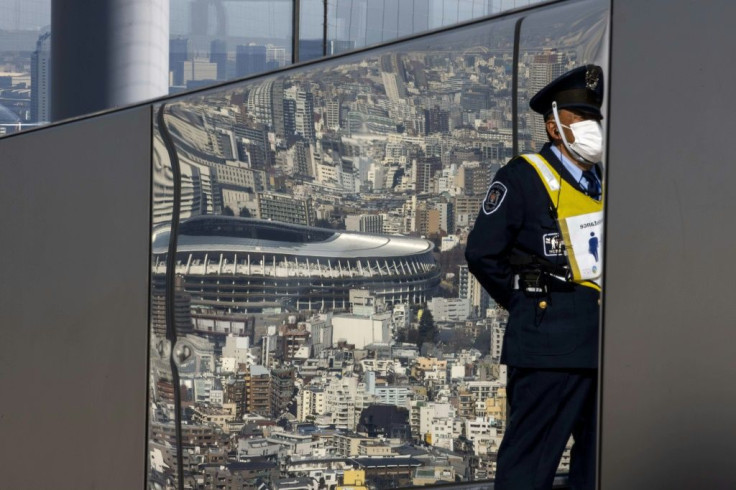Japan Extends Virus Emergency, Months Before Delayed Olympics
Japan's government approved a month-long extension of its coronavirus state of emergency on Tuesday, less than six months before the pandemic-postponed Olympic Games open in Tokyo.
Prime Minister Yoshihide Suga said the measures that will now run through March 7 in several parts of the country had helped bring down infections but more needed to be done.
"Hospitalisation will remain high for some time to come, that is why we have to continue with these measures," he said. "Each and every one of us needs to change the way we act if we are to contain the virus's spread."
The extension will apply to 10 of the 11 areas currently under the measure, including greater Tokyo, which had been due to end on February 7. It will not be extended in Tochigi, north of the capital, where cases are judged to have dropped sufficiently.
Suga said the state of emergency could be lifted before March 7 "in prefectures where the virus situation improves".
Japan's virus emergency is significantly looser than the lockdowns seen elsewhere in the world, and primarily calls for increased teleworking and the closure of bars and restaurants from 8pm.
Legislation currently working its way through parliament would add enforcement measures including fines for businesses that do not close early.
But even the comparatively relaxed approach appears to have yielded results, with new infections dropping across the country.
Still, after facing criticism for its initial reluctance to impose the measure, the government has been cautious about lifting it too quickly.

Suga's government resisted calls for the emergency late last year, despite an uptick in cases in December, worried about the impact on an economy that only just exited recession.
The measure initially covered just the greater Tokyo area, but was expanded about a week after it was first announced as infections spiked in several parts of the country.
Japan's coronavirus outbreak has been comparatively small nationwide, with around 5,800 deaths overall.
But the country's healthcare system has become increasingly overburdened, and public support for both the initial imposition of the emergency, and Tuesday's extension, is strong.
Suga's government has seen approval ratings plummet over its handling of the country's third wave of infections, which has increased doubts about the prospects for this summer's postponed Olympics.
Japan has yet to approve any coronavirus vaccines, though Suga said Tuesday he would like jabs to begin in mid-February, earlier than previous estimates for a rollout from late February.
The first vaccines are expected to go to around 10,000 healthcare workers, with the rollout expanded only in April, initially to the elderly.
Japan's government, organisers and Olympic officials all insist the Games will go ahead this summer, and extensive virus countermeasures are being developed to keep the event safe.
But public opinion remains opposed, with around 80 percent of Japanese polled backing a further postponement or outright cancellation.
Japan has tightened border restrictions during the state of emergency, ending exemptions for athletes.
That has forced the cancellation and postponement of some sports events, including the first Olympic test event of 2021 -- an artistic swimming qualifier that had been scheduled for March.
Earlier Tuesday, Tokyo 2020 President Yoshiro Mori said the Games would go ahead "however the coronavirus (pandemic) evolves."
© Copyright AFP 2024. All rights reserved.




















